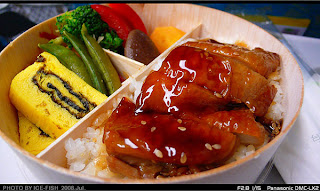
I often think that if we lived in Kending, I would have a much harder time leaving Taiwan. Kending is the southern most point of the island, and being a combination of beach, mountain, and countryside, it is a beautiful area and offers a lot.
In fact, it's hard to believe we were in Taiwan for almost 7 months before our first trip to Kending. But it only took one weekend down there to get us hooked. We decided to learn scuba diving, and during that first weekend of training as we rode around in the bed of our instructor's truck, we fell in love with the clean fresh breeze, the beautiful scenery, and the calm vibe of the ocean side.
 At first we only spent one weekend a month there. We didn't want to lose focus on our Chinese studies, and we wanted to save money for scuba gear. But as time went on, we found Kending to be an irresistible weekend getaway. After we bought a car, getting down there became almost too easy, and I spent my week waiting to escape the city smog on Friday night.
At first we only spent one weekend a month there. We didn't want to lose focus on our Chinese studies, and we wanted to save money for scuba gear. But as time went on, we found Kending to be an irresistible weekend getaway. After we bought a car, getting down there became almost too easy, and I spent my week waiting to escape the city smog on Friday night.Spending so much time in Kending pretty much ruined any chance of having a social life in Kaohisung, but we were happy with our scuba friends and the way we were spending our weekends. Jonathan and I could not understand why more people did not get down there on the weekends. Why they preferred to drink beer in a pollution ridden city rather than enjoy the beautiful nature less than two hours away. But in the end, while we spent a lot of time trying to convince our Kaohsiung friends to join us, we often left the city by ourselves.

After our scuba instructor left Taiwan about year ago, we took over the house he rented there with some other diving friends. When that happened, spending the weekend in the city became a rare occurrence. The people we shared the house with weren't really there that often, and we could bring our friends for the weekend, or just get away ourselves. We spent most of the time diving, and Jonathan will have completed about 200 dives since we began in March 2009. I have some catching up to do though, no diving with baby!
Yesterday I said goodbye to that house, and to Kending. To the friend
 s we have there, the beautiful ocean, and the distinct smell of the air. It is hard to leave that behind, and the many wonderful weekends spent there, because being there became such a large part of our lives here in Taiwan. It will be hard not having it any more, although probably not right away. We will be busy when we first return home, but I'm sure it won't be too long before we are longing to drive our blue station wagon down the coast for a weekend of diving.
s we have there, the beautiful ocean, and the distinct smell of the air. It is hard to leave that behind, and the many wonderful weekends spent there, because being there became such a large part of our lives here in Taiwan. It will be hard not having it any more, although probably not right away. We will be busy when we first return home, but I'm sure it won't be too long before we are longing to drive our blue station wagon down the coast for a weekend of diving.




























